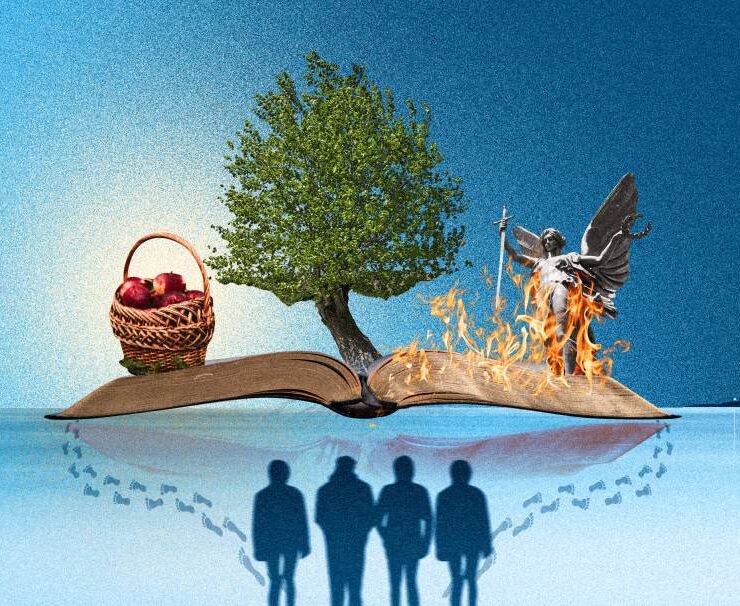‘What do you want me to do for you?’

Oct. 27—30th Sunday in Ordinary Time
Readings: Jeremiah 31:7-9; Psalm 126, R. The Lord has done great things for us; we are filled with joy.; Hebrews 5:1-6; Gospel—Mark 10:46-52
What do you want me to do for you?” (Mk 10:46-52) This is a question the Lord asks of all who approach him in faith.
This is a question I invite you to reflect on this Sunday—from a personal perspective, from the experience of the present calamity wrought by Severe Tropical Storm “Kristine” (international name: Trami), and from the context of the ongoing synod on synodality in the Vatican.
What do we want the Lord to do for us? For Bartimaeus in today’s Gospel, his desire was very clear: “Master, I want to see.”
There is a sense of irony here. His physical blindness gives clarity to his spiritual vision. His desire to see was a desire for grace.
He saw clearly with his spiritual eyes and the eyes of his heart that Jesus of Nazareth was the son of David, the Messiah. And being in the presence of the Messiah, he opened his life to grace.
He asked for the grace, “Have pity on me.” And the grace was to be in the presence of Jesus. This is the first grace, a genuine encounter with Jesus, and in such encounters, we are given the grace of the question, “What do you want me to do for you?”
We pray for the grace of such encounters that we may be blessed with the grace of the question of what we want Jesus to do for us.
This same question is posed to us as a community. Every time we gather in his name is a moment of encounter. And these days, we gather to pray for the victims of our present calamity.
As we pray for and work to help those in need, those who are suffering, amid all our activities and concerns, let us pause and as a community allow God’s question to be heard: “What do you want me to do for you?”
Gathered as a community, one in faith and hope, I pray we will confront this question and communally discern and search for answers that will unite us and form us into a community of compassion.
Yes, amid crises and calamities, let our desire be to be a community of compassion to care for those most in need.
Compassion
And beyond this present and immediate response, it is to continue as a community to build a caring community of compassion that will protect and champion the welfare of the most vulnerable to calamities with constancy and persistence.
Sad to say, in the busy-ness of our rescue and relief work—and the blaming that has become more and more a companion of calamities—we, understandably, “drop dead” from exhaustion when the emergency is over.
Sometimes, I think we fail to enter a dynamic dialogue with Jesus: “What do you want me to do for you?”
Perhaps it is in this dialogue that we will discover the path to a more sustained course of action forward, creating a caring and compassionate community that will champion the needs of the perennial victims of calamities.
Like the Good Samaritan, we can create a network of compassion enlisting the help and support of the willing, transforming others into agents of compassionate and caring action.
Crossroads
“What do you want me to do for you?” This is also asked of us members of our church.
I think we are at the crossroads with the present Synod on Synodality, where we are discerning the way forward from Vatican II on how we are to be a church community.
Now is the time for us to encounter Jesus in a synodal way and together respond to his question, “What do you want me to do for you?”
Let this bring us back to our hopes and dreams as followers of Jesus, as Christians, as brothers and sisters in Christ.
And in sharing our hopes and dreams, let us have faith that we will discover together that our hopes and dreams are rooted and grounded in the one hope and one dream of God for us.
“What do you want me to do for you?”
“Master, that [we] may see” your Son as your Beloved Son in each one of us, most especially the poor, the marginalized, and the most vulnerable among us; that we may see you as Our Father.





















